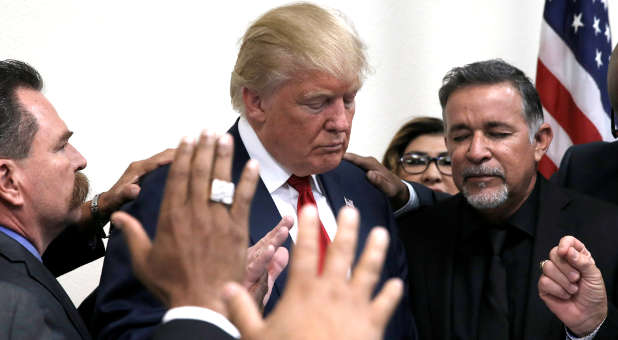Is a New Cultural Agenda Possible Under Trump?
Americans who grew up in the 1950s—or whose early lives were shaped by people from that era—tend to look back on that decade as not only a wonderful season of American prosperity but as a time of moral righteousness on a national level.
Many Americans remember it as a time when there were no disputes about right and wrong, good and evil. Everybody tended to agree on such things. Some individuals had a more liberal perspective, but no one was preaching rebellion against the overall moral code.
Respected journalist David Aikman articulated this very well in an op-ed published recently on cn.mycharisma.com. I’ve known Aikman, now retired, since the 1970s when he was a senior foreign correspondent for Time magazine. He says America had a civic religion in those days—a basic Christian morality reinforced by the preaching of evangelists like Billy Graham.
Donald Trump was a product of that era. He grew up a nominal Christian with traditional moral values. It was only later that he became more libertarian on matters such as homosexuality.
“After the campus upheavals and the anti-war movement of the 1960s,” Aikman says, “the entire culture began to experience a shift that introduced new worldviews, in Hollywood, academia and the media.” Constant pressure from the left as well as the explosion of hedonism and self-gratification in the 1970s and 1980s escalated the pace of moral change.
In 2017, Aikman said, “America has undergone seven decades during which the existence of God has been repeatedly mocked or utterly dismissed on college campuses and in public schools.” While Donald Trump has never said anything about wanting to change American culture, his numerous attacks on political correctness endeared him to evangelical voters. After the election, many Christians began to think President Trump might be favorable to any grassroots movement seeking to make America morally great once again.
Part of Trump’s appeal to Christians, of course, was simply that he wasn’t Hillary. Mike Bickle, founder of the International House of Prayer, told me, “When it came down to Trump or Hillary, there was no question.” Even though Trump was saying outrageous things that would have destroyed any other candidate, the people loved him.
Aikman says if Hillary had been elected, it would have been not only a continuation of America’s lurch to the left but the doorway to a new era of corruption like nothing we have ever seen. It would have made the hope of renewal and restoration many Christians were praying for much harder to achieve.
Evangelist James Robison told me in a recent telephone interview, “A lot of Christians were praying that we wouldn’t lose freedom, that we would not lose the opportunities this nation offers.” Robison, who serves on the president’s faith advisory board, has become Trump’s friend and confidant and now believes his election was an answer to prayer.
Meanwhile, the secular pundits saw Trump’s victory as only a battle between Democrat and Republican or left and right. But Robison saw it as a supernatural spiritual battle.
“What happened,” Robison told me, “is that God overpowered the foolishness of political correctness and the liberal (not just deceived but possessed) left, which is far too often deadset against a biblical worldview. … But they were being totally pushed back.”
The secular left in this country, Robison said, are being manipulated by powers Jesus was talking about when He said of those who crucified Him, “They don’t know what they’re doing” (see Luke 23:34). The left knew what they were doing, but “they were deceived by the deceiver,” Robison said.
Christians were praying, “God, we’ve got to let you be God. We’ve got to stop this nonsense.” Robison added, “Christians were praying for this to be stopped, but they never dreamed it would be some person totally disconnected with politics, totally unable to even express himself like a politician and someone who was best known as a shrewd maneuverer.”
Trump may not have handled things in the most diplomatic way, Robison said, but he spoke with conviction about what’s wrong in this country.
“He was totally open about everything that was wrong. Most of us would agree that he didn’t address those problems in the most diplomatic terms, but everything he was saying was right on track. He was saying that many things in this country are bad, and they needed to be dealt with—and he was 100 percent correct.” {eoa}
















































